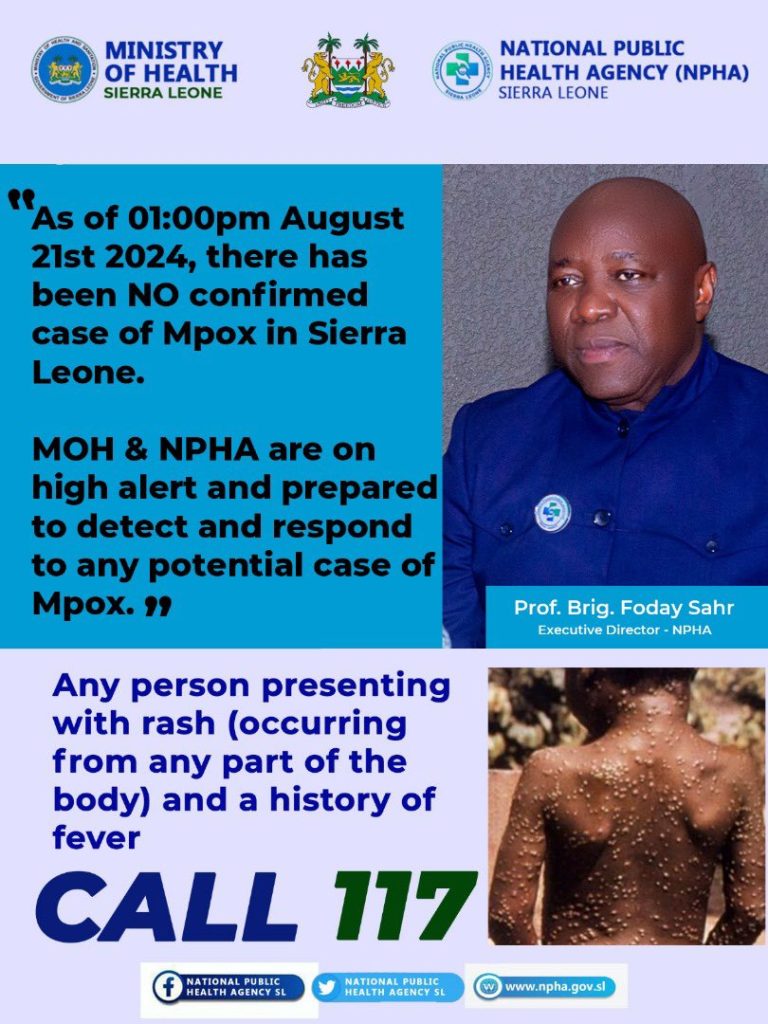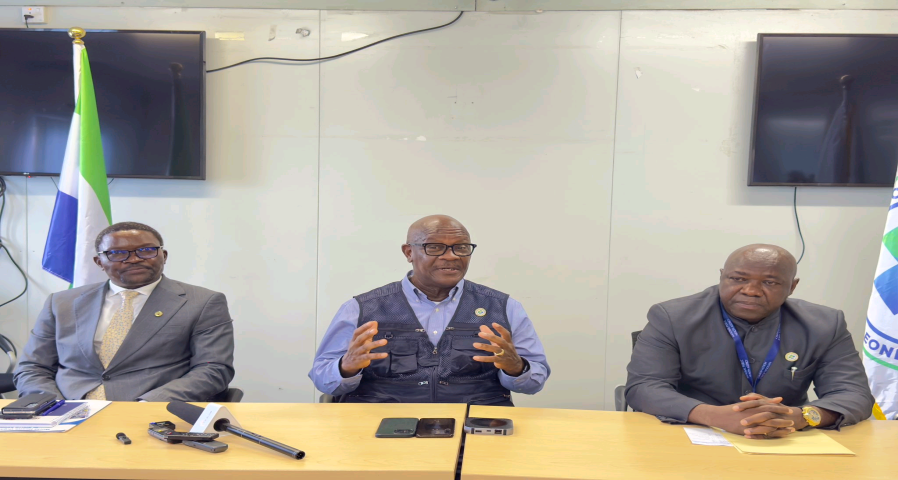Left: WHO Rep, Health Minister in the Middle & Executive Director MPHA
By Ibrahim Sorie Koroma, Senior Health Education Officer, HEP/MoH.
In light of growing concerns about Mpox in Africa, Sierra Leone’s health officials have announced that the country currently has no confirmed cases of the disease. This assurance was given during a press briefing for journalists in Freetown on Tuesday, August 20th, when officials detailed the proactive measures being taken to protect public health.
Professor Foday Sahr, Executive Director of the National Public Health Agency (NPHA), emphasized that, while there have been no confirmed cases of Mpox in Sierra Leone, health officials are well aware of the disease’s potential threat. “We understand the risks associated with Mpox and are taking the necessary precautions to protect our population,” he said. He assured the public that there is no cause for concern, as the government has increased surveillance efforts at all entry points, including the international airport and various border crossings.

In addition to increased surveillance, Professor Sahr emphasized the readiness of health workers who have received training to detect and respond to any potential Mpox cases. He emphasized the importance of community involvement and collaboration with the media in disseminating accurate information. “It is critical to raise community awareness about Mpox so that people can recognize the signs and symptoms, allowing them to take appropriate action,” he said.
The Honorable Minister of Health, Dr. Austin Demby, also spoke to the media, stating that the government’s primary goal is to prevent the virus from entering Sierra Leone. However, he acknowledged the possibility of new cases and reassured the public that the country is prepared for early detection and containment. “We must educate the public about the disease and make sure our messaging is clear and consistent,” Dr. Demby said. He urged people to report any signs of the disease, such as the “KroKro” rash, to their nearest health facility or dial 117 for an emergency.
As part of the preventive measures, Dr Demby discussed the availability of a Mpox vaccine, which he clarified is not currently available in Sierra Leone.”The vaccine is primarily distributed to countries with reported cases, and supplies are limited,” he stated. In the absence of a vaccine, he urged the public to take precautions to reduce their risk of infection. “While everyone is at risk, immunocompromised individuals are particularly vulnerable. As a result, we must all work together to prevent the spread of this disease,” he said.
During the briefing, the World Health Organization (WHO) Country Representative in Sierra Leone recognized the gravity of the situation while assuring the public that Mpox is a treatable disease. He urged the community not to stigmatize people who show signs of Mpox. “Stigmatization discourages people from seeking help and may exacerbate the situation. “We must remember that this disease can affect anyone,” he cautioned.
The WHO representative concluded by reiterating the organization’s commitment to assisting the Sierra Leonean government and the Ministry of Health in addressing health concerns, including the ongoing Mpox threat. The collective message from health officials is clear: while there have been no confirmed cases of Mpox in Sierra Leone, vigilance, public awareness, and preparedness are critical to protecting the population from potential outbreaks.
As the situation progresses, health officials urge the public to stay informed and involved in preventive health measures. Sierra Leone’s health officials’ proactive approach emphasizes the importance of community participation in combating infectious diseases and ensuring the well-being of all citizens.
